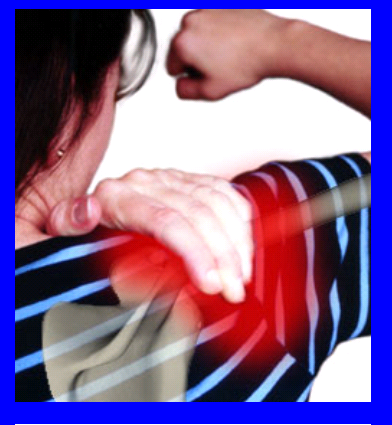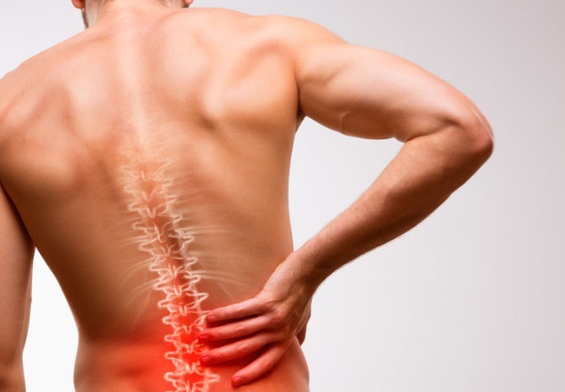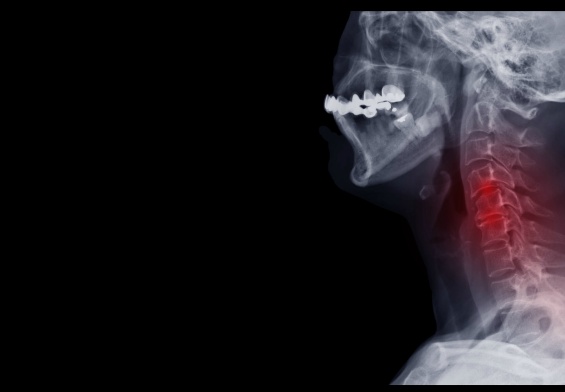If you’re living with sharp neck pain that radiates down your arm, or numbness that won’t go away, you may be dealing with a pinched nerve — also known as cervical radiculopathy.
The good news is that most people recover without surgery. In fact, research shows that the majority of cases improve within weeks to months using nonsurgical treatment.
If you live in New Jersey, understand your options for treating cervical radiculopathy without surgery. Doing so can help you feel better faster and avoid unnecessary interventions. This guide details some of the most common nonsurgical approaches that provide relief.
What Is Cervical Radiculopathy?
Cervical radiculopathy occurs when a nerve in the neck becomes compressed or irritated. This pressure on the nerve can cause a range of symptoms. Some of these include pain that radiates into the shoulder or arm, tingling, numbness, and sometimes muscle weakness.
Many people describe the sensation as a burning or pins-and-needles feeling that travels down the arm.
Common causes include herniated discs, degeneration in the cervical spine, poor posture, repetitive movements, or injury.
Most cases affect adults between the ages of 30 and 60, but the condition becomes more common with age.
Why Nonsurgical Treatment Is Usually the First Approach
One of the most important things to know about cervical radiculopathy treatment is that it’s a great alternative to surgery.
Studies show that many patients experience significant relief with nonsurgical treatment over time. That’s why spine specialists usually recommend a conservative care plan before surgery.
Surgery is generally reserved for cases where these nonsurgical options don’t work. They usually involve severe nerve compression, progressive muscle weakness, or symptoms that persist for several months.
Effective Nonsurgical Treatments for Neck Nerve Pain Relief in NJ
If you’re seeking relief from cervical radiculopathy in NJ, here’s what you can expect from nonsurgical treatment:
Rest and Activity Modification
In the early stages, taking a break from activities that strain your neck can make a big difference.
That might mean avoiding heavy lifting, overhead work, or hunching over a screen for long periods.
Some patients enjoy using a soft cervical collar for short periods. It limits neck motion, reducing nerve irritation in the neck.
Good posture is also essential. Making posture adjustments at work or at home can reduce stress and support healing.
Heat, Ice, and At-Home Care
Simple home remedies for pinched nerves can ease discomfort and support recovery.
Applying ice during the first few days can reduce inflammation around the pinched nerve.
After that, using a warm compress can help relax tight muscles and improve circulation. Home care can include methods to reduce arm tingling through proper posture.
Short, frequent movement breaks are also helpful. Avoid staying in one position for too long, whether sitting at a desk or lying down.
Medications
Many people manage symptoms with over-the-counter medications.
Nonsteroidal anti-inflammatory drugs (NSAIDs), like ibuprofen or naproxen, can reduce pain and swelling.
For more severe symptoms, doctors may prescribe a short course of oral corticosteroids.
Some patients find relief from medications like gabapentin or pregabalin. They’re designed to relieve nerve-related pain such as tingling and burning sensations.
Physical Therapy and Targeted Exercises for Cervical Radiculopathy
Physical therapy is one of the most effective nonsurgical treatments for cervical radiculopathy.
A physical therapist can design a customized program. Most include stretching, strengthening, and posture correction exercises.
These pinched nerve neck exercises relieve pressure on the nerve. This improves range of motion over time.
When dealing with nerve compression in the neck, targeted neck stiffness reducing stretches can provide relief.
Traction therapy can also stretch the cervical spine, reducing compression.
Symptoms might start to get better. At this point, the focus shifts to strengthening the neck, shoulders, and upper back to prevent future flare-ups.
Most patients notice improvement within four to six weeks of starting physical therapy.
Epidural Steroid Injections
If symptoms persist despite home care and physical therapy, your doctor may recommend an epidural steroid injection.
This involves injecting anti-inflammatory medication into the space around the affected nerve root.
For many patients in New Jersey, this treatment helps reduce pinched nerve pain and inflammation enough to avoid surgery.
While not a permanent solution, it can provide relief for several weeks or months. This allows more time for other treatments to continue working.
Complementary Therapies
Some patients choose to supplement their recovery plan with extra therapies.
Massage therapy can help release muscle tension in the neck and shoulders.
Acupuncture can reduce nerve pain in some cases.
Gentle yoga or stretching routines can improve flexibility without aggravating symptoms.
These approaches are best used alongside the nonsurgical neck pain treatments outlined above.
How Long Does Recovery Take?
Every case of cervical radiculopathy is different. Most people start feeling better in four to six weeks of nonsurgical treatment.
For some, symptoms may resolve in two to three months.
In others, it may take up to a year for the nerve to heal completely.
Research shows that most patients recover without surgery within a one-year period.
Preventing Future Flare-Ups
Once your symptoms improve, you can reduce your risk of recurrence by making a few simple changes:
- Maintain good posture, especially when sitting at a computer.
- Incorporate neck and upper back stretches into your routine.
- Stay active and strengthen your neck and shoulder muscles.
- Avoid carrying heavy bags on one side of your body.
- Use ergonomic pillows and adjust your workstation setup.
Being proactive about neck health can reduce the chances of your cervical radiculopathy coming back.
When to Seek Medical Attention
While most cases improve with nonsurgical care, it’s important to know when to seek further medical attention. You should contact a healthcare provider if:
- Your symptoms last longer than six weeks without improvement.
- You experience significant weakness in your arm or hand.
- Pain continues to worsen or spreads to other areas.
- You develop problems with coordination, balance, or bladder control.
If any of these happen, see a specialist in cervical radiculopathy in NJ. They’ll help you explore more treatment options, including surgical evaluation if necessary.
Long-Term Outlook
The vast majority of people with cervical radiculopathy recover without surgery.
Nonsurgical treatments for pinched nerves — from physical therapy to at-home care — are effective, low-risk, and accessible to most patients.
By addressing symptoms early, following your treatment plan, and making small lifestyle adjustments, you can regain your mobility and return to your daily activities.
Mental Health and Chronic Pain
Living with cervical radiculopathy can influence your mental and emotional well-being.
Persistent pain can lead to feelings of frustration, anxiety, and even depression.
It’s important to recognize that these feelings are valid and to seek support when needed.
Here are some strategies to manage the mental health aspects of chronic pain:
- Mindfulness and Relaxation Techniques: Practices like meditation, deep breathing, and yoga can help reduce stress and improve your mood.
- Support Groups: Connecting with others who understand what you’re going through can provide emotional support and practical advice.
- Professional Counseling: A therapist can help you address any underlying emotional issues and develop strategies for managing pain-related stress.
- Maintain Social Connections: Chronic pain can lead to isolation. Maintaining social connections can improve your mood and well-being.
- Exercise and Activity: While it may seem counterintuitive, gentle exercise can improve physical and mental health. Consult with your physical therapist or doctor for safe and effective exercises.
Addressing the physical and mental aspects of cervical nerve pain plays a huge role in a comprehensive recovery.
Cervical Radiculopathy NJ FAQs
What are the best exercises for cervical radiculopathy pain relief?
Physical therapy often involves targeted exercises that focus on stretching and strengthening the neck and upper back. These pinched nerve relief exercises aim to relieve pressure on the compressed nerve. A physical therapist can create a plan customized to your specific case.
How can I relieve a pinched nerve in my neck at home?
Home remedies for cervical radiculopathy such as applying ice and heat, practicing good posture, and taking over-the-counter pain relievers can help reduce symptoms. Short movement breaks are also very helpful.
What is the best physical therapy for a pinched nerve in the neck in NJ?
A physical therapist that specializes in musculoskeletal conditions can create a plan that includes traction therapy and strengthening exercises. When searching for a cervical radiculopathy specialist in NJ, make sure to read reviews and check their specializations.
How long does it take for cervical radiculopathy to heal without surgery?
Most people experience significant relief within a few weeks to a few months of starting nonsurgical cervical treatment. Full recovery can take up to a year in some cases.
When should I seek medical attention for neck nerve pain?
Talk to a healthcare provider if your symptoms worsen, persist for more than six weeks without improvement, or if you experience significant muscle weakness, coordination problems, or loss of bladder control.
Dealing With Cervical Radiculopathy
A pinched nerve in the neck doesn’t have to interfere with your life.
Nonsurgical pinched nerve treatments offer a clear path to relief and recovery.
Whether you’re in the early stages of discomfort or have been struggling for weeks, start with conservative care.
Wondering how to relieve pinched nerve in neck without surgery is completely understandable.
For those that suffer from spinal nerve problems, pain management is a key factor.
If you’re experiencing symptoms of cervical radiculopathy in NJ, speak with a qualified healthcare provider. Together, you can develop a treatment plan that works — without surgery.
Resources:
https://wexnermedical.osu.edu/brain-spine-neuro/spine-diseases-conditions/pinched-nerve
https://www.hss.edu/conditions_cervical-radiculopathy-nonoperative-treatments-epidural.asp
https://my.clevelandclinic.org/health/diseases/6481-pinched-nerves#management-and-treatment
https://www.healthline.com/health/pinched-nerve-in-neck-exercises




